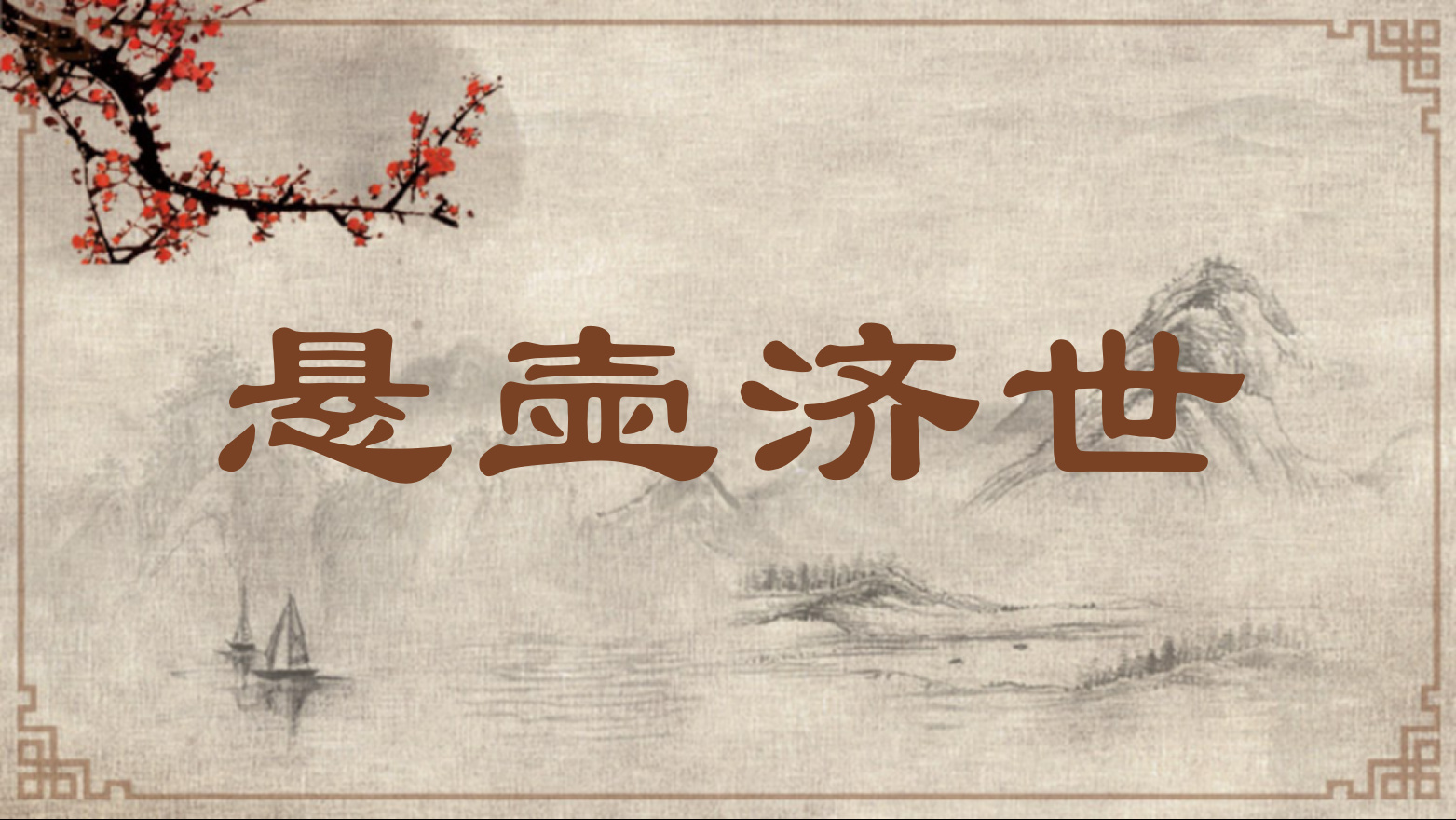悬壶济世
Hanging a Gourd (Practicing Medicine) to Help the World

行医救助世人。“悬壶”即把装药的葫芦挂起来,作为行医卖药的招牌,泛指从事医疗职业;“济世”是对困苦之人提供救助。这一观念,使行医卖药超越了一般职业与谋生手段而被赋予了人文关怀的意义。它既是世人对于医者救死扶伤、治病救人行为的一种赞颂,也是医者用以自励的道德准则和价值判断。
This term means to help people by practicing medicine. "Hanging a gourd" refers to the tradition of using gourd containing medications as a sign for those practicing and selling medicine; it is used more broadly to refer to those in the medical profession. "Helping the world" means providing aid and relief to those in distress. This concept elevates the practice of medicine above ordinary occupations and livelihoods, and imbues it with humanistic caring. It praises the deeds of physicians who care for the sick and dying, and is also a moral standard and value by which they should measure themselves.
引例 Citations:
◎市中有老翁卖药,悬一壶于肆头。(《后汉书·方术传下·费长房》)
集市里面有一个卖药的老头儿,把一只药葫芦挂在集市的街头。
There was an old man who sold medicine in the market. He hung a medicine gourd at his market stand. (History of the Later Han Dynasty)
◎所以医人不得恃己所长,专心经略财物,但作救苦之心……志存救济,故亦曲碎论之,学者不可耻言之鄙俚也。(孙思邈《千金方·论大医精诚》)
行医之人,不能仗着自己有一技之长,光想着谋取财物,而要怀有一颗把世人从苦痛中解救出来的善心……[我]志在救助世人,所以絮絮叨叨地讲论这些,希望学医的人不要耻笑我的想法很鄙陋。
Someone who practices medicine must not simply rely on a particular skill and think only of acquiring money and goods. Rather, he must have a passion for relieving the sufferings of others… My aim is to help others, and I hope students of medicine will not mock my keeping saying so as being shallow. (Sun Simiao: Essential Formulas for Emergencies)
推荐:教育部 国家语委
供稿:北京外国语大学 外语教学与研究出版社
责任编辑:钱耐安





